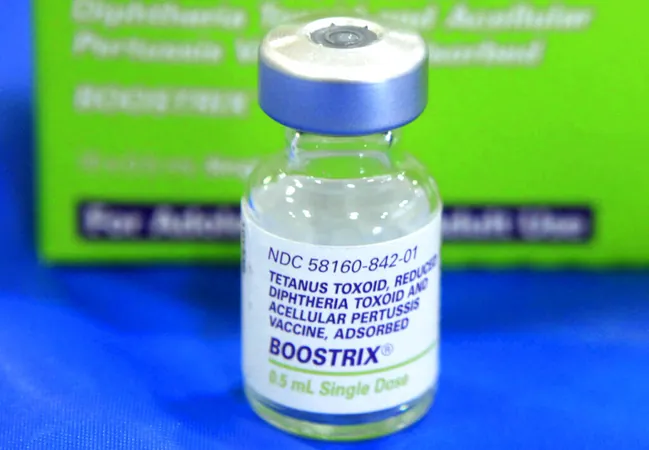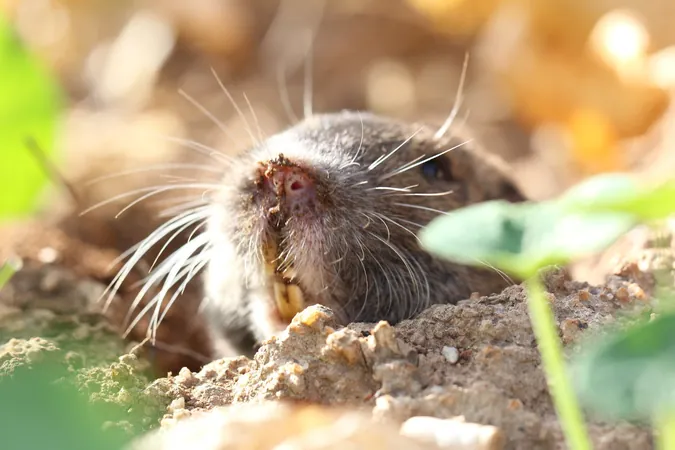
Alarming Surge in Whooping Cough Cases: Clark County Leads Washington with 406 Diagnosed Children
2024-11-13
Author: Ming
Overview
Clark County is grappling with a staggering increase in whooping cough and chickenpox cases, prompting urgent calls for action from health officials. This outbreak, largely preventable through vaccinations, has resulted in a total of 406 confirmed cases of whooping cough among residents, predominantly affecting children. This figure positions Clark County as the county with the highest reported cases in all of Washington State.
Recent Trends
The data highlights a concerning trend; 168 of these cases emerged in just the last two months alone, starkly contrasting with the 14 cases reported in the entirety of 2023. Furthermore, the situation is compounded by a rise in chickenpox cases, with 50 cases documented since the beginning of the year, including 23 linked to three separate school outbreaks that occurred in late September.
Vaccination Status
Health officials emphasize that a significant number of these whooping cough and chickenpox cases involve unvaccinated children. Dr. Alan Melnick, the Clark County Public Health Director, expressed frustration over the preventability of these outbreaks. "There are various reasons parents might choose not to vaccinate their children, but these outbreaks should not be occurring,” he stated. Melnick urges families to make sure their children’s vaccinations are current to mitigate further spread.
Recognizing Symptoms and Risks
Whooping cough, also known as pertussis, is a contagious respiratory illness that transmits easily through coughing, sneezing, or merely breathing near an infected individual. Infants under one year of age face the most severe health risks associated with this disease, which can lead to serious complications.
On the other hand, chickenpox is caused by the varicella-zoster virus and spreads through direct contact with an infected individual. Symptoms typically begin with fever, fatigue, loss of appetite, and headaches, followed by a distinctive rash that develops into itchy, fluid-filled blisters. It's important to note that individuals with chickenpox can be contagious up to two days before the rash appears, remaining that way until all blisters have scabbed over.
As part of preventive measures during an outbreak, unvaccinated students may be excluded from school for 21 days following their last exposure to the disease.
Effective Treatment and Vaccination Strategies
The treatment for whooping cough generally involves antibiotics, which eliminate the contagious risk after five days of administration, although the cough itself may persist. To prevent whooping cough, children are advised to receive five doses of the DTaP vaccine by age seven. Adolescents from age 11, as well as adults, should receive a Tdap booster to maintain immunity.
While vaccinated individuals can still contract whooping cough, the nature of the disease tends to be less severe in these cases, underscoring the importance of widespread immunization.
As outbreaks of these preventable diseases continue to emerge in Clark County, public health officials reiterate the critical nature of vaccinations as a proactive measure to protect not just individuals, but the community at large. Now more than ever, it is vital for families to prioritize immunizations to avoid further health crises.




 Brasil (PT)
Brasil (PT)
 Canada (EN)
Canada (EN)
 Chile (ES)
Chile (ES)
 España (ES)
España (ES)
 France (FR)
France (FR)
 Hong Kong (EN)
Hong Kong (EN)
 Italia (IT)
Italia (IT)
 日本 (JA)
日本 (JA)
 Magyarország (HU)
Magyarország (HU)
 Norge (NO)
Norge (NO)
 Polska (PL)
Polska (PL)
 Schweiz (DE)
Schweiz (DE)
 Singapore (EN)
Singapore (EN)
 Sverige (SV)
Sverige (SV)
 Suomi (FI)
Suomi (FI)
 Türkiye (TR)
Türkiye (TR)